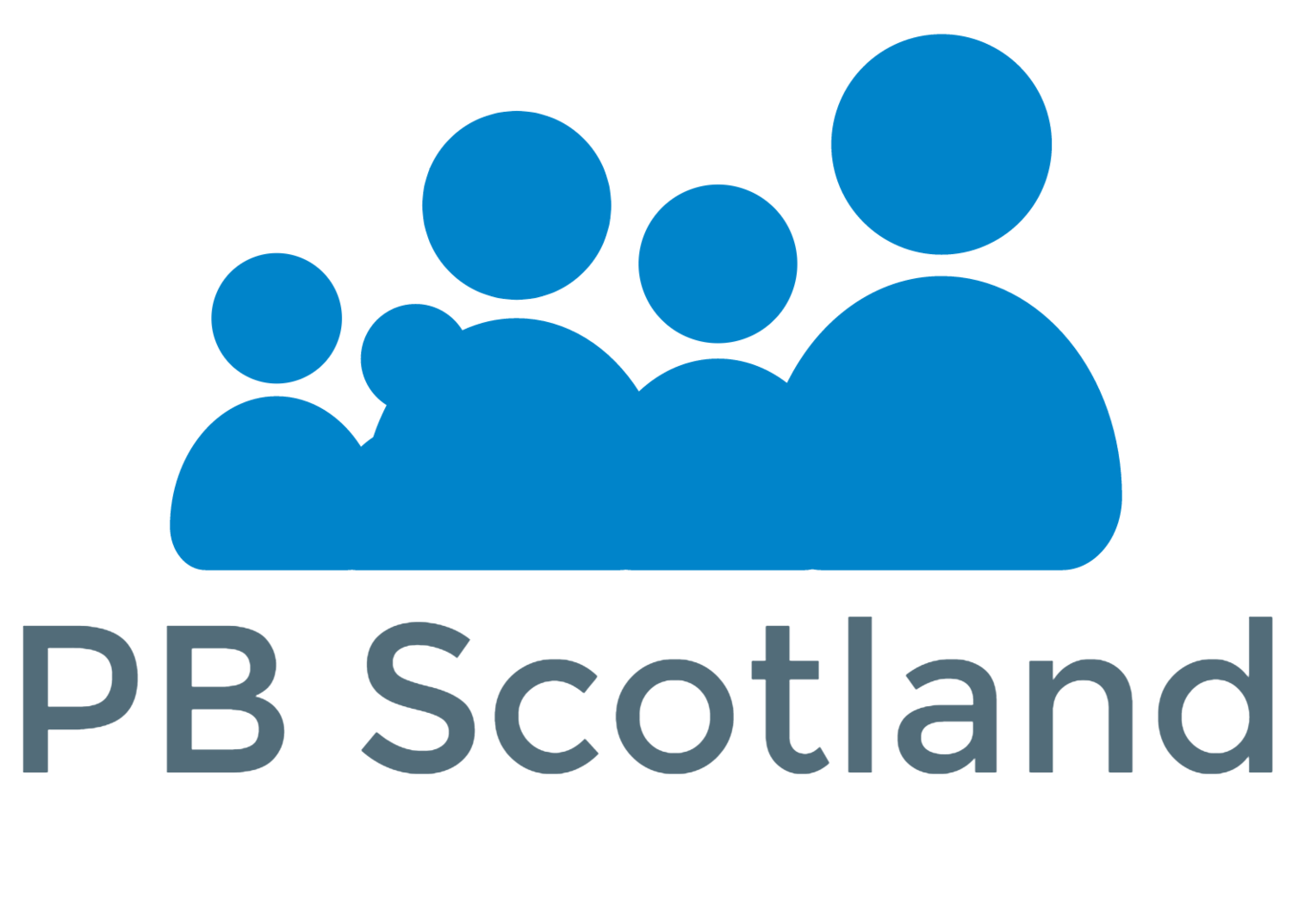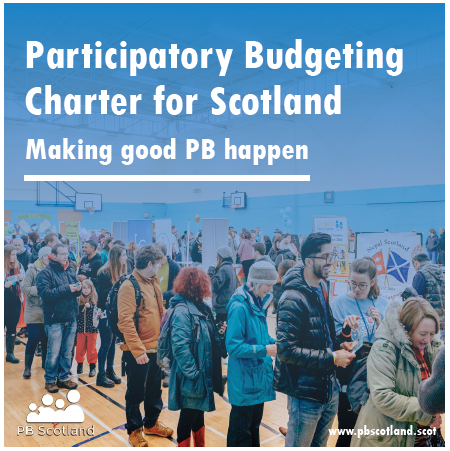Event report: Digital Participatory budgeting - 25 March 2019
/How can we combine in-person and online participatory budgeting methods? That’s the question more than 50 people took on at this PB Scotland learning event.
Jointly hosted by PB Scotland and COSLA, the event featured inputs from Young Scot and The Democratic Society, with the loads of questions, ideas and discussions from people in the room.
Setting the scene
David Reilly from SCDC (which hosts PB Scotland) kicked off for us, providing some context for the day outlining why PB practice is core to achieving more empowered communities:
David stressed the importance of our decisions and practice being value-driven, and the opportunity to widen participation through using PB to boost our efforts to achieve equality, empower communities through good processes, and make better decisions on public money.
Whatever our mix between online and in-person PB, we should take a co-productive approach with communities having an equal seat at the table when decision are being taken.
#DigitalPB. Challenge for digital PB is how to build in more of a ‘deliberative’ component. Scotland perhaps currently has a bit of a ‘deliberation deficit’.
— £eith Chooses (@LeithChooses) March 25, 2019
Gavin Crosby, Young Scot
Our first input was from Gavin Crosby who spoke about Young Scot’s work around digital participation and PB, highlighting their online voting system has been used for PB processes from North Ayrshire to Moray.
Gavin made it clear that we don’t need to choose between in person and online voting – we can and should do both. They can support each other. He also talked about the balance that has to be struck between achieving low cost + robust vote security + high turnout - and just how hard that can sometimes be.
We also need to compare online with face-to-face PB and not let perfect be the enemy of the good. He used the example of voting security, but pointed out that we’re not talking about hyper secure technology - instead it’s about being robust enough.
Simon Cameron, COSLA
Simon’s role supporting local authorities to carry out PB puts him in a great position to introduce the Consul platform and talk about its role in moving towards ‘mainstream’ PB in Scotland.
Simon stressed that digital means of PB, participation and engagement are an enhancement to our efforts and are not the only approach to take. We should not be ‘digital by default’ as this risks a whole host of people being excluded because they don’t have the skills or access to engage digitally.
Consul, a free, open source platform used across 33 countries, has been developed as a single tool for local government participation and is now being piloted with 16 local authorities in Scotland. In Madrid, where Consul has been adopted, PB is seen as the least of what the platform does as it allows a range of different ways people can engage with decision makers.
@Demsoc Digital participatory budgeting in Scotland – learning report gives lots of food for thought for how we embed and mainstream PB locally #digitalPB https://t.co/WZbo3TmSb8
— PB Fife (@PbFife) March 25, 2019
Kelly McBride, Demsoc
The Democratic Society offers support and shares learning about digital approaches to PB across Scotland. Kelly McBride, Head of Scotland, offered her insights after a day of ‘active listening’, sharing some of her reflections about how we can develop digital PB in Scotland.
Kelly reflected on some of the key issues on accessibility and inclusion in digital PB - and the importance of making sure digital tools don’t add to the barriers people already face.
She also mentioned the recently published report from Demsoc which reviews the last two years of digital PB activity in Scotland, providing valuable learning about different tools, techniques and ideas. Crucially, it also offers some solutions in next steps of digital PB practice.








